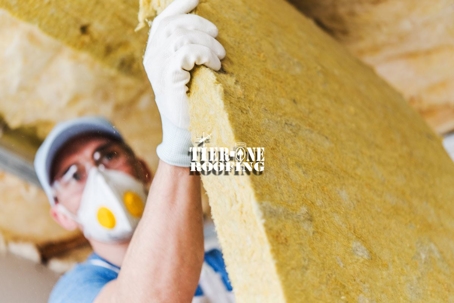Tulsa's climate plays a significant role in determining the best roofing materials for homes and buildings in the area. With its hot summers, freezing winters, and occasional severe weather events, it's essential to select roofing materials that can withstand Tulsa's unique weather conditions. In this article, we will explore the impact of Tulsa's climate on roofing material selection and guide you in choosing the right material for your Tulsa roof.
- Hot Summers and UV Radiation
Tulsa experiences hot and sunny summers, which subject roofs to intense heat and prolonged exposure to UV radiation. These elements can cause roofing materials to deteriorate over time, leading to premature aging, fading, and potential structural issues. Therefore, it's important to choose materials that are UV resistant and can withstand high temperatures.
Options such as asphalt shingles with reflective coatings, metal roofing, or clay and concrete tiles are excellent choices for Tulsa's hot summers. These materials offer durability, heat resistance, and UV protection, ensuring that your roof can withstand the summer heat and maintain its integrity.
- Freezing Winters and Ice Dams
Tulsa's winters bring freezing temperatures and occasional snowfall, which can lead to the formation of ice dams on roofs. Ice dams occur when snow melts and refreezes near the roof's edges, causing water to back up and potentially penetrate the roof system. Choosing the right roofing material can help prevent ice dam formation and protect against water infiltration.
Roofing materials with good insulation properties and the ability to shed snow quickly are ideal for Tulsa's winters. Options like metal roofing, synthetic slate, or architectural shingles with proper underlayment provide effective protection against ice dams and water damage.
- Severe Weather Events
Tulsa is susceptible to severe weather events, including thunderstorms, hail, and high winds. These events can cause significant damage to roofs if the materials are not designed to withstand such conditions. When selecting roofing materials, it's important to consider their impact resistance and wind ratings.
Impact-resistant materials like metal roofing, concrete or clay tiles, and certain types of synthetic roofing materials are recommended for Tulsa's climate. These materials have the ability to withstand hail and protect against damage caused by flying debris during severe storms.
- Moisture and Humidity
Tulsa experiences moderate to high humidity levels throughout the year, which can contribute to moisture-related issues if proper precautions are not taken. Moisture can lead to the growth of mold, algae, or rot, compromising the integrity of the roof. Selecting moisture-resistant materials is crucial for maintaining a healthy and durable roof.
Roofing materials such as metal, concrete tiles, and synthetic roofing options offer excellent moisture resistance. These materials do not absorb moisture and are less prone to mold or rot, making them suitable choices for Tulsa's humid climate.
- Energy Efficiency
Energy efficiency is an important consideration for homeowners in Tulsa, given the hot summers and the need for efficient cooling. Opting for energy-efficient roofing materials can help reduce energy consumption, lower utility costs, and enhance indoor comfort.
Cool roofing options like metal roofing with reflective coatings or shingles with high solar reflectance and thermal emittance are ideal choices for energy efficiency in Tulsa. These materials reflect sunlight, reducing heat absorption, and minimizing the strain on cooling systems.
- Aesthetics and Architectural Style
While functionality and durability are crucial, the aesthetic appeal of roofing materials should also be considered. Tulsa has a diverse architectural landscape, and selecting materials that complement the architectural style of your home can enhance its curb appeal and overall aesthetic.
Materials such as asphalt shingles, wood shakes, clay or concrete tiles, and synthetic slate offer a wide range of styles, colors, and textures to suit various architectural designs in Tulsa. Consider the existing architectural elements of your home and choose a roofing material that harmonizes with the overall aesthetic while providing the necessary durability and weather resistance.
In Conclusion
Choosing the right roofing material for your Tulsa home is crucial to ensure its longevity, durability, and ability to withstand the city's unique climate. Factors such as hot summers, freezing winters, severe weather events, moisture, humidity, energy efficiency, and architectural style should all be considered when selecting roofing materials.
At Tier One Roofing, we understand the impact of Tulsa's climate on roofing materials and can provide expert guidance in choosing the right material for your specific needs. Our team of professionals is knowledgeable about the strengths and weaknesses of different roofing materials and can recommend the best options to withstand Tulsa's weather conditions while meeting your aesthetic preferences.
Contact Tier One Roofing today to discuss your roofing needs and receive personalized recommendations for the most suitable roofing materials for your Tulsa home. Trust our expertise and experience to ensure that your roof is built to withstand the elements and provide long-lasting protection for your property.

